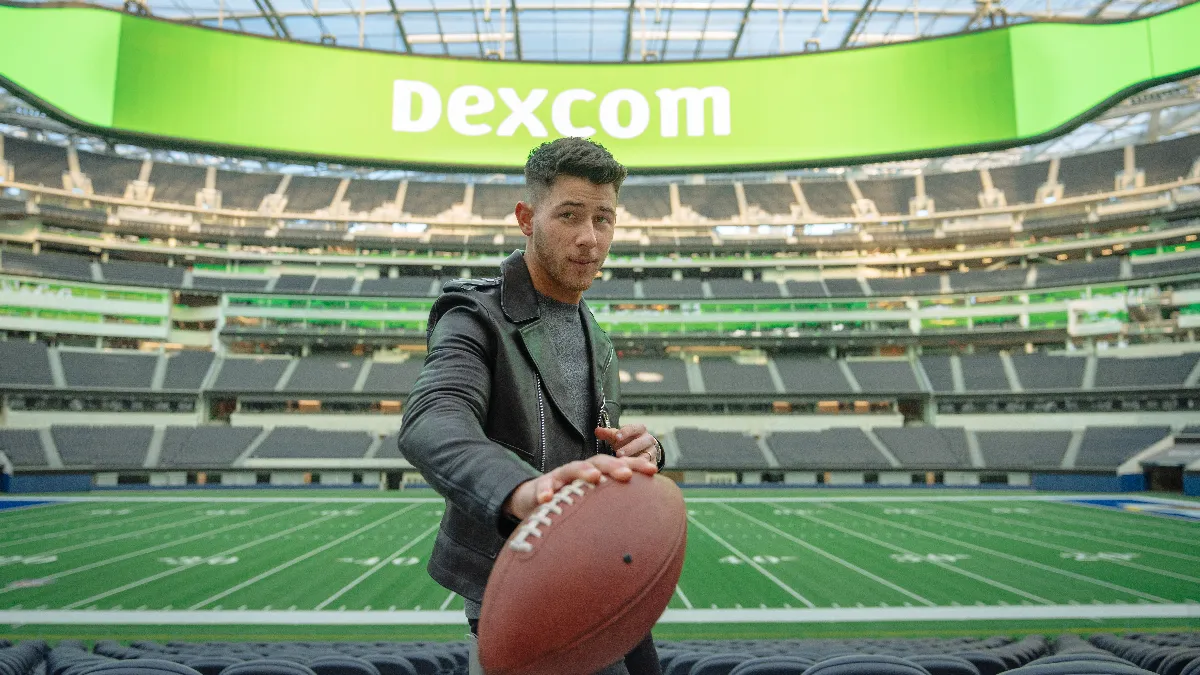Dive Brief:
-
Dexcom has presented early clinical data on its next-generation continuous glucose monitor, which has been one of the most anticipated new products of 2021 in a diabetes tech market that is seeing competition intensify.
-
The results from Dexcom's G7 device compare favorably to data on Abbott's FreeStyle Libre 2 and on the company's predecessor G6, leading analysts at SVB Leerink to hail the early evidence as "very encouraging." However, Evercore ISI analysts warned Dexcom will need to compete with Abbott on price to crack the Type 2 diabetes market.
-
Dexcom presented the data alongside results from studies that compared G6 to fingersticks and Libre in, respectively, Type 2 and Type 1 diabetes patients. Both clinical trials met their primary endpoints.
Dive Insight:
Dexcom CEO Kevin Sayer has set the bar high for G7, telling investors on a conference call in late April that the "software, the app and the performance of the system" is going to be "spectacular" and "set a real standard." A presentation at the 14th International Conference on Advanced Technologies & Treatments for Diabetes provided an early look at whether G7 can live up to Sayer’s bullishness.
The data come from 91 adults enrolled in small studies, not the pivotal trial designed to support U.S. approval. G7 achieved a mean absolute relative difference (MARD) — a common metric used to assess CGM systems — of 8.7%. The lower the MARD metric, the closer CGM readings are to the reference glucose value. In the preliminary studies, G7 achieved a lower MARD than either Libre 2, which scored 9.2%, or its G6 predecessor.
G7 glucose readings were within 20% of the Yellow Springs Instrument (YSI) reference values 93.8% of the time. The device was accurate from the get-go, achieving a MARD of 10.2% and YSI agreement of 90.7% on day one.
Analysts at Evercore ISI compared all the results favorably to data on Abbott’s Libre and Medtronic's Zeus, and their peers at SVB Leerink were similarly encouraged.
"With G7 60% smaller and including other patient benefits like a smaller and easier-to-use all-in-one sensor applicator and transmitter, as well as G7 expected to be significantly cheaper to manufacture, similar performance metrics to the current best-in-class device should in our view help DXCM retain its best-in-class position in the market," the SVB Leerink analysts wrote in a note to investors.
The lower cost of manufacturing G7 could be critical as Dexcom tries to wrestle market share from Abbott.
Analysts at Evercore ISI said that, although the G7 data look "slightly better" than the Libre results, "clinically these products will be viewed as being similar."
The potential lack of differentiating data means the analysts expect pricing to influence who controls the Type 2 market.
"Unless DXCM can match ABT's $1200 price point, it will be tough to gain meaningful traction in the T2 market," the Evercore ISI analysts wrote.
Sayer declined to provide details of Dexcom's G7 pricing strategy on a recent conference call when an analyst asked how much of a price premium over Libre is sustainable. Further details will emerge after the G7 launch, which is slated for the second half of the year.
The pricing battle has already influenced Dexcom's marketing strategy. The company recently decided to sell the majority of its CGMs through the pharmacy rather than the durable medical equipment channel, meeting customers more directly. The move helps Dexcom lower the price of their devices and gain pricing ground on Abbott.
Executives contend that the pharmacy switch drops prices but allows Dexcom to make up losses with greater volumes.
While the small trial shows slightly better results to Abbott's Libre 2, Dexcom is comparing the company's newest device to an older Abbott device. Abbott's FreeStyle Libre 3 is currently approved for and is being rolled out across Europe. The company has not yet released a timetable for a U.S. launch.
Medtronic is also re-prioritizing and investing in its diabetes business, including both CGMs and insulin pumps, to stay at the top of the diabetes tech market with Dexcom and Abbott.
The other studies discussed by Dexcom this week tested G6. Writing in the Journal of the American Medical Association, Dexcom and its collaborators reported that Type 2 diabetics who used G6 in a 175-subject study experienced steeper declines in hemoglobin A1c at eight months than their peers who used traditional fingerstick blood glucose monitoring.
Expanding to patients with Type 2 diabetes is the next move for the entire diabetes tech market, with CGM makers eyeing the patient population as well as insulin pump makers Tandem Diabetes Care and Insulet. However, skepticism has built whether all Type 2 patients require CGMs and insulin pumps to successfully manage their health.
As diabetes tech companies look to expand, they also have to manage access issues for patients, including devices that can be too costly for patients that need them and coverage challenges in Medicare and private insurance.
Finally, a paper in The Lancet shared results from the first six months of a study that is comparing G6 to Libre in Type 1 diabetes patients. The G6 cohort spent more time in the target blood glucose range and a higher proportion of patients using the Dexcom device achieved a target glucose level of 7% or lower. Analysts at J.P.Morgan said the G6 studies are "positive for Dexcom in general, both for CGM in Type 1 patients and CGM for non-intensive Type 2 patients."










